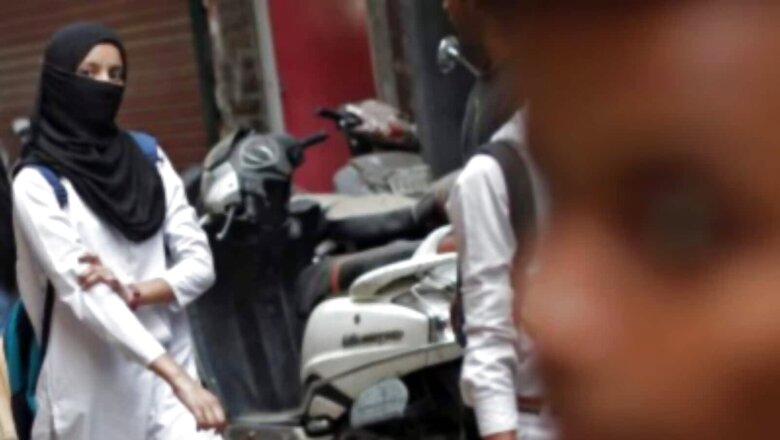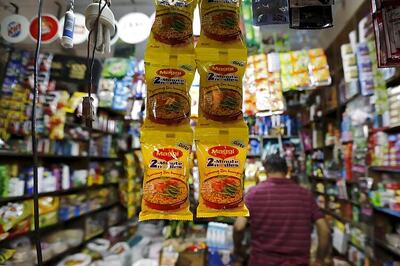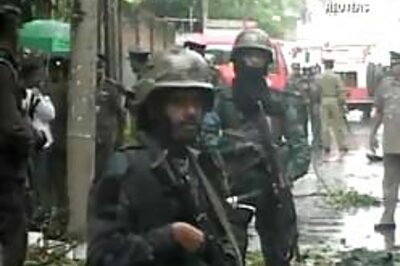
views
The campaign war during election is just like a game of chess, both sides looking for opportunities and new strategies to defeat the other. Although the hijab controversy erupted in Udupi, Karnataka, it has become a political hot potato in poll-bound Uttar Pradesh. While UP chief minister in an interview with India Today said that no woman wears hijab by choice, All India Majlis-e-Ittehadul Muslimeen (AIMIM) leader Asaduddin Owaisi, whose party is contesting 100 seats in UP, has said that a hijab-clad woman will become the country’s prime minister one day.
Beyond political rhetoric, in this instance, the issue of hijab is being debated in people’s drawing rooms and at roadside tea stalls and pan shops. A subject like this can polarise people along religious lines. A section of non-Muslims see hijab as an unnecessary identity assertion by a section of Muslim community whereas the Muslim community sees it as yet another incident which makes them feel insecure.
In fact, such incidences lead to insecurity among both majority and minority communities, and these insecurities work as fodder for political polarisation during elections. But to what extent?
In Sheikhpura, a Muslim basti near Allahabad, on the surface of it, no villager talks about the hijab issue, but you prod them, and they open up. And, it is mostly the men who speak – they see it as an attack on their religious rights and freedom. Muslim women in this basti, who are unlettered and mostly engaged in binding bidis, do not speak much on this. Few school- and college-going girls say, ‘Allow us to do as we wish.’
In Phulpur, which was once the constituency of former Prime Minister Jawaharlal Nehru, I spoke to some Hindus who said everyone should wear the school or college uniform. They don’t agree with the assertion of Muslim leaders on this subject.
Here, polarisation in the majority community can happen in favour of a party that does not support minority appeasement – for most people, the BJP seems to be the only such party in UP elections. So, it may benefit the BJP to some extent.
However, for the minority community, this can trigger fear psychosis and may bring more cohesive polarisation among a section of this community in favour a party they find sympathetic towards Muslim identity and culture. In such issue-based polarisation, the winnability factor of a party against the BJP can also attract voters. The Samajwadi Party may have an edge over an AIMIM here.
ALSO READ | UP Next: Only Religious Identity Will Not Determine a Muslim Voter’s Choice
While the hijab issue can influence electoral politics across the state, in districts like Azamgarh and Mau, which have a large Muslim population and are going to polls in the seventh and final phase on March 7, the polarisation can be more pronounced.
However, just the hijab issue cannot work independently to turn a community against or in favour of a party. The issue along with other key issues/aspirations and demands of a community can provide the base for religious identity-based electoral politics.
In the month-long elections in UP, the campaign issues have changed in line with constituencies or regions going to polls. It is true that controversies have limited shelf life but even in a short span, they can play a role in strengthening long-term religious identity-based electoral politics in our country.
Badri Narayan is Professor and Director at GB Pant Social Science Institute, Prayagraj, and author of ‘Republic of Hindutva’. The views expressed in this article are those of the author and do not represent the stand of this publication.
Read all the Latest Opinion News and Breaking News here



















Comments
0 comment